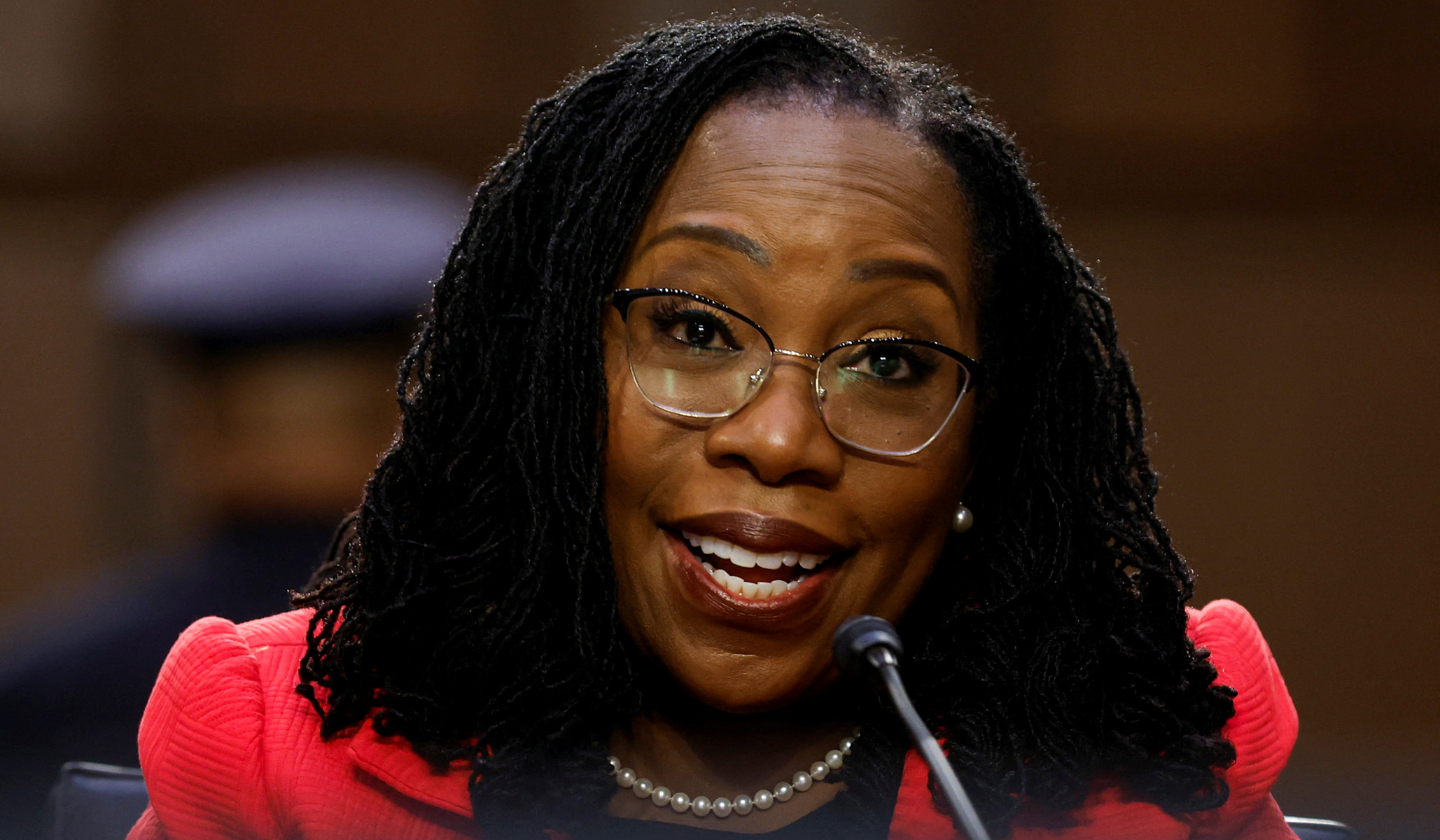During her second day of Supreme Court confirmation hearings on Tuesday, Judge Ketanji Brown Jackson responded to the charge that her judicial record shows a leniency towards those found guilty of possessing child pornography.
Senator Dick Durbin (D., Ill.) opened his allotted time by asking Jackson to explain what she was thinking when Senator Josh Hawley (R., Mo.) claimed on Twitter last week that Jackson may have “endangered children” by handing down lenient sentences to child-porn offenders.
“As a mother, and a judge who has had to deal with these cases, I was thinking that nothing could be further from the truth,” Jackson replied.
Hawley tweeted last week that he “noticed an alarming pattern when it comes to Judge Jackson's treatment of sex offenders, especially those preying on children.” In her policy work on the federal sentencing commission, Jackson has argued against severe mandatory-minimum prison sentences for the receipt and distribution of pornographic pictures, on the grounds that the volume of material in an offender’s possession was made obsolete as a standard once the internet began to enable the mass-transmission of pornographic material.
In defending her record as a judge, Jackson argued during Tuesday’s hearing that she used her discretion, based on her knowledge of each case, on the three occasions when she handed down sentences that were less than the minimum federal-sentencing guideline.
“There’s a statute that tells judges what they’re supposed to do…That statute doesn’t say only look at the guidelines and stop. It doesn’t say impose the highest possible penalty for this sickening and egregious crime,” she added. “The statute says to calculate the guideline but also look at various aspects of this offense and impose a sentence that is ‘sufficient but not greater than necessary’ to promote the purposes of punishment.”
“These are some of the most difficult cases that a judge has to deal with because we’re talking about pictures of sex abuse of children, we’re talking about graphic descriptions that judges have to read and consider when they decide how to sentence in these cases,” she said.
House Republicans have also expressed concern about Jackson’s history of handling child pornography cases, calling on the Senate Judiciary Committee to launch an investigation into Jackson’s record on the matter, the Daily Caller reported.
In an article cited multiple times during the first day of Jackson’s confirmation hearings, NR’s Andy McCarthy argued that Jackson’s child-porn sentencing record is pedestrian and reflects an understanding that the minimum five-year federal sentencing guideline for the possession of child porn is outdated in the age of the internet.
Criminal law makes a distinction between child pornography consumption vs. production offenses, McCarthy notes. Although many judges understand that the former perpetuates a system of child pornography by fueling the market for it, the latter involves explicit child abuse that demands a harsher penalty.
During her testimony Tuesday, Jackson touted her respect for her “limited” role and duties as a judge, asserting that she stays within the confines of the job and applies a strict methodology regardless of the politics at play, although Democratic senators have argued that her jurisprudence will be shaped by her personal perspective as a black woman.
In addition to her sentencing record, Jackson’s critics have cited a 1996 note she wrote for Harvard Law Review in arguing that she takes a lenient view of child-porn offenders. In that article, Jackson questioned whether placing such offenders on a sex offender registry might subject them to unconstitutional long-term societal punishment.
Jackson adopted Amy Coney Barrett’s approach when asked about her stance on court-packing, refusing to say whether she’d support or oppose such a proposal.


![Breaking: Judge Jackson Responds to Child-Porn Leniency Charge: ‘Nothing Could Be Further from the Truth’]() Reviewed by Diogenes
on
March 22, 2022
Rating:
Reviewed by Diogenes
on
March 22, 2022
Rating:












No comments: